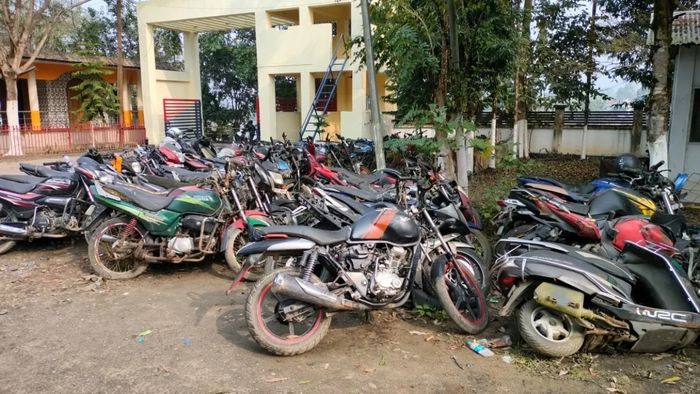Mizoram police disable 60 Chinese motorcycles owned by Myanmar refugees in Lunglei
Police in Mizoram’s Lunglei district have disabled 60 Chinese-made Kenbo motorcycles used by Myanmar refugees residing in relief camps across the Lunglei satellite area.

- Apr 22, 2025,
- Updated Apr 22, 2025, 2:35 PM IST
In a decisive move, police in Mizoram’s Lunglei district have disabled 60 Chinese-made Kenbo motorcycles used by Myanmar refugees residing in relief camps across the Lunglei satellite area.
Speaking to the media, Lunglei Superintendent of Police Jerome Lalmuankima confirmed that police began removing the front tyres of the motorcycles on Friday. The tyres have been taken to the local police station for safekeeping, while the motorcycles remain parked at three separate locations within the camp.
“The tyres will be returned when the refugees go back to Myanmar,” SP Lalmuankima stated.
The action follows concerns over the unregulated movement of refugee vehicles. On Monday, a coordination meeting was held at the SP office with refugee leaders from the Thaizawl camp, including the refugee welfare secretary, village council president, and the refugee in-charge. It was decided that any refugee intending to stay outside the camp overnight must now inform the authorities in advance.
Also Read: Mizoram Guv, Navy Chief Admiral flag off 'Soldierathon’ to honour soldiers, nearly 4000 join
Additionally, SP Lalmuankima announced that police will conduct inspections twice a week in the refugee camps to monitor activities and maintain order.
In a related initiative, Lunglei police—working in collaboration with Lunglei YMA sub-headquarters, Mizo Zirlai Pawl, and the Mizo Students’ Union—will launch a cultural awareness campaign on Thursday at the Ramthar camp. The aim is to familiarise the refugees with Mizo culture and social practices.
The developments mark a shift in the state’s approach toward managing refugee settlements, combining administrative control with cultural outreach.